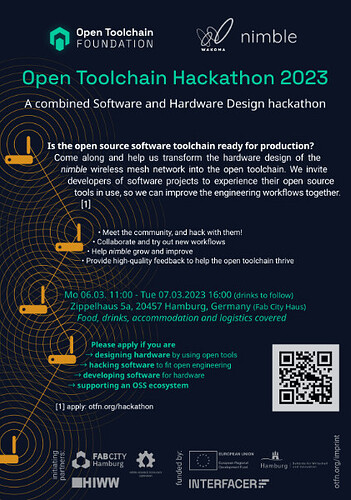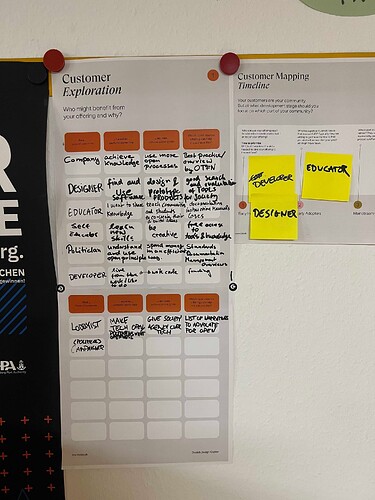@Thams I didn’t participate, but I paid attention and have thought about this activity. When I was looking at the stakeholders list, “Parents” kept coming to mind as an addition, but I couldn’t define why and it didn’t seem like it fit with the other stakeholders. However, it finally struck me this morning why Parents might be interesting stakeholders. There are three aspects to this that I can think of.
- OER resources for homeschooling parents and smaller schools.
- STEAM kits for children (with OER resources that tie in with #1)
- Parents and children as advocates for the open toolchain.
On #1, in the US there is a significant market for homeschool resources, enough that there are companies dedicated to creating resources for just this market. It’s possible that these OER resources could be created in such a way that they work for public school systems as well, or at least overlap, depending on certification requirements.
The reason I thought of #2 is that there are companies such as KiwiCo that offer STEAM kits for kids on a subscription basis, and our family has a subscription. YouTuber Mark Rober has launched a maker kit subscription service that uses Arduino, but I’m not sure how focused it is on being open. Another example might be the littleBits kits from Ayah Bedir.
Just to maybe spark some ideas, I’ll now switch into hypothetical mode. Maybe a partner of OTFN could create an open toolchain focused maker kit service, or an existing service could be convinced to carry a few open toolchain related kits throughout the year. There would be an activity in each kit designed using open tools, with the source available online. The guided activities in it could include things such as:
- Use Inkscape or FreeCAD to create 2D decorations that can be printed on paper and used to enhance what the child is making.
- Use open textile software (or a parametric FreeCAD model if there are not any) to print a customized pattern to make something like stuffed animal clothes (for toy stuffed animals, not real animals that are stuffed). Sorry if the terminology is not right here, it’s not an area of expertise for me.
- Use Inkscape or FreeCAD to create printed paper templates for a 3D printer pen (I’ve done this and they can be really cool).
Each kit could have a Maker Stick included so that no installation or configuration of tools would be needed. Kids could use their parents’ computer without changing anything, or claim and reuse an old laptop/desktop. Then they would have all the tools needed for the activities easily accessible, with access to a bunch of other tools if they wanted to experiment. All the source would be available as well, so modification of the core activity could be done by a child, parent or educator.
Having something like this would help introduce children to using open tools early, and might help make parents into advocates when trying to work with educators and lawmakers.
It seems like development of the first few kits and the related OER materials could be a Hackathon of its own, which might help with testing the assumptions.
Not sure if this is helpful in this context, but the thoughts clicked into place for me today and I thought I’d post them.

